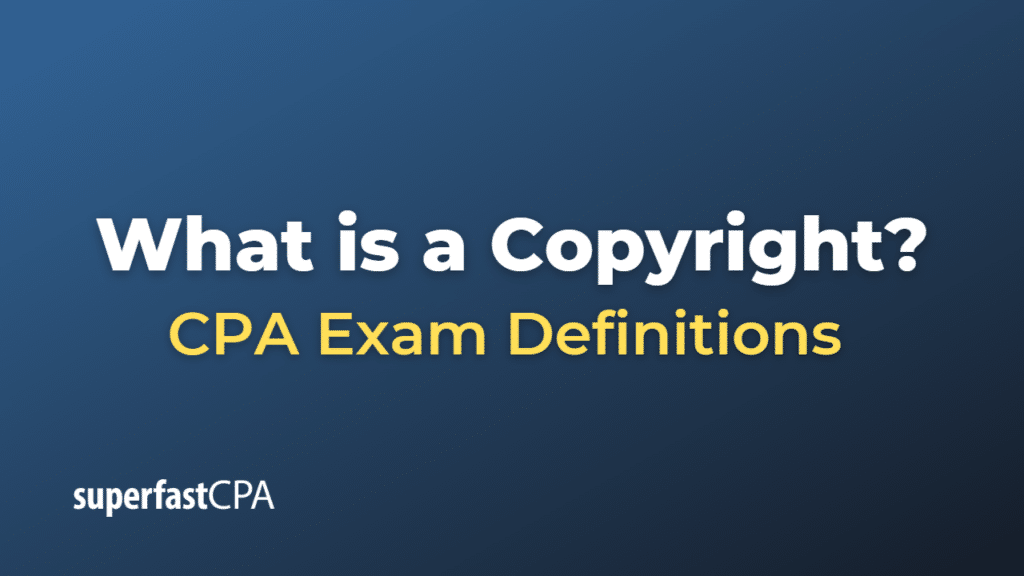Copyright
A copyright is a legal protection granted to creators of original works, providing them with exclusive rights to reproduce, distribute, publicly display, perform, or create derivative works based on their creations. Copyrights cover a wide range of creative works, such as literary works, music, paintings, photographs, films, software, and architectural designs.
Copyright law aims to encourage creativity and innovation by giving creators control over their works and the ability to earn income from their creations. At the same time, copyright law also seeks to balance the interests of creators with those of the public by allowing certain uses of copyrighted works without permission, such as for educational purposes or commentary, under the doctrine of fair use (in the United States) or fair dealing (in other countries).
In most countries, a copyright is automatically granted upon the creation of an original work, without the need for registration. However, registration can provide additional benefits, such as a public record of the copyright claim and stronger legal protection in case of infringement disputes.
The duration of copyright protection varies depending on the jurisdiction and the type of work, but generally, it lasts for the life of the author plus a certain number of years after their death (e.g., 70 years in the United States and European Union).
Copyright owners have the exclusive right to:
- Reproduce the work: Make copies of the work in any format (e.g., print, digital, or audio).
- Distribute the work: Sell, rent, lend, or otherwise distribute copies of the work to the public.
- Publicly display or perform the work: Show or perform the work in public, such as in a theater, gallery, or concert.
- Create derivative works: Create new works based on the original work, such as adaptations, translations, or remixes.
It is important to note that copyright protection does not extend to ideas, facts, or methods, but only to the specific expression of those ideas in a tangible form.
Example of a Copyright
Let’s consider an example to illustrate how copyright works:
Jane is a talented author who has just finished writing an original novel titled “The Mysterious Island.” As soon as she completes the novel, Jane automatically holds the copyright for her work, even without registering it. This copyright grants her several exclusive rights, including the rights to reproduce, distribute, publicly display or perform, and create derivative works based on her novel.
Jane decides to publish her novel and signs a contract with a publishing company. In the agreement, she grants the publisher a license to reproduce and distribute her novel in exchange for royalties. The publisher prints copies of “The Mysterious Island” and sells them in bookstores and online platforms. Jane earns income from the sales through the royalty agreement with the publisher.
A few months later, Jane learns that an unauthorized e-book version of her novel is being distributed on a file-sharing website. As the copyright holder, she has the right to take legal action against the party responsible for this infringement, seeking remedies such as the removal of the infringing material, monetary damages, or an injunction to prevent further infringement.
Meanwhile, a film production company approaches Jane with an interest in adapting “The Mysterious Island” into a movie. Jane agrees to license the film rights to the production company, allowing them to create a derivative work based on her novel.
In this example, copyright protection enables Jane to control the use of her novel, earn income from her creation, and take legal action against unauthorized uses. At the same time, copyright law allows Jane to grant licenses to others for specific uses, such as publishing or creating adaptations, while still retaining her ownership of the original work.













